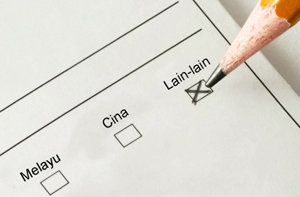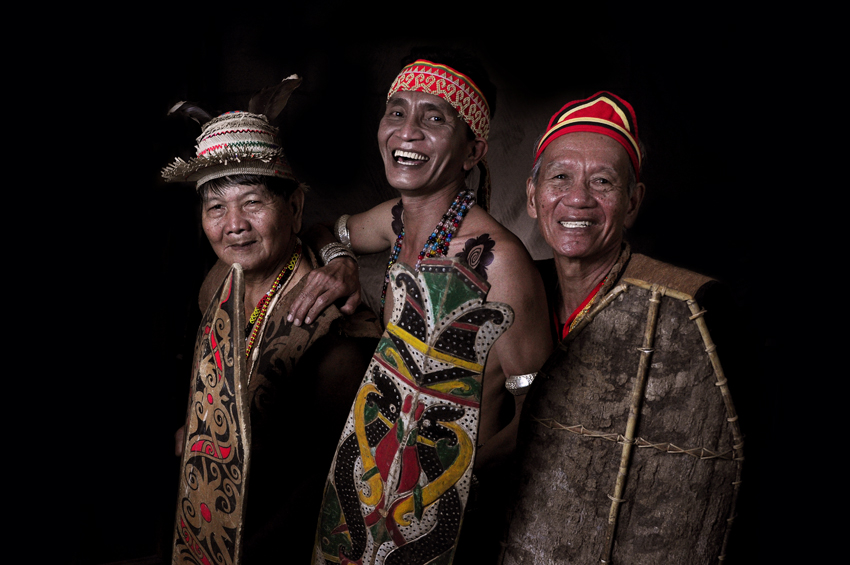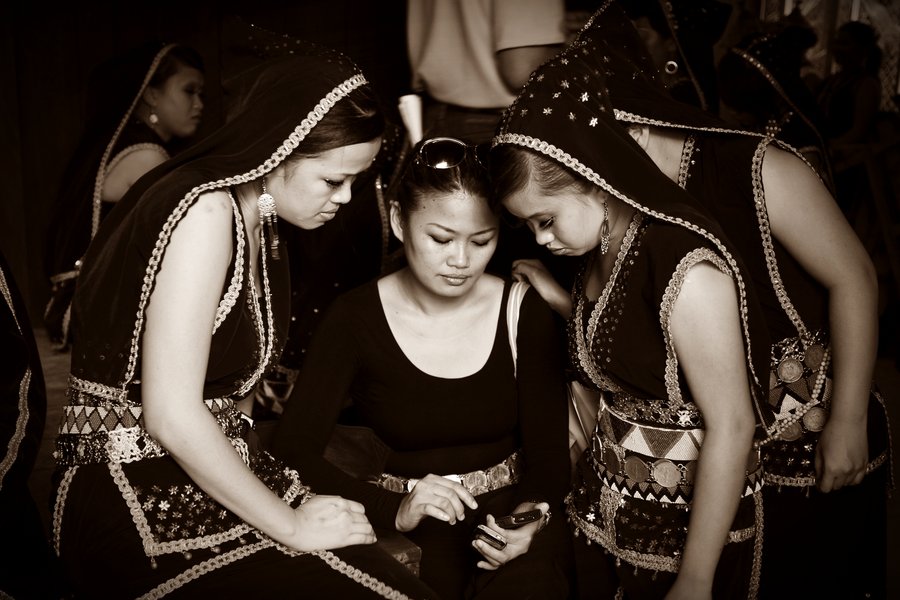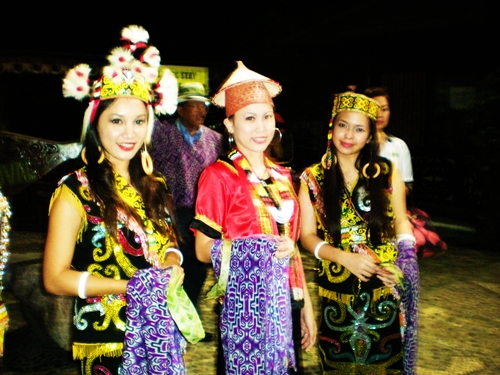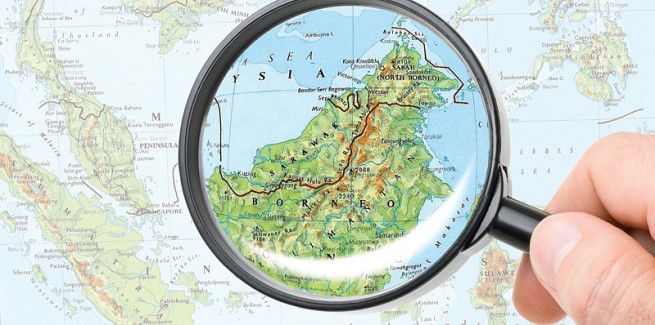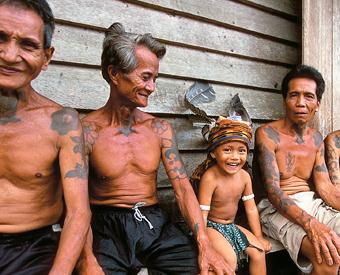Two East Malaysians Tell Us Why Removing "Lain-Lain" Is Just The Tip Of The Iceberg
Those from the Peninsular might think it's a cool move, but for the ethnic people of Sabah and Sarawak, it means much, much, more than that.
After 58 years of being lumped together as "Lain-Lain" (Others), the ethnic people of Malaysia are finally getting due recognition, starting with Sarawak and Sabah
The “lain-lain” column in the race category has been a point of contention among Borneo’s native races who are mostly from ethnic tribes, with Sabah itself having over 30 ethnic races. The racial make-up of the east Malaysian state is vastly different from that of states in the Malaysian peninsula, which is typically categorised under Malay, Chinese and Indian and the contentious “lain-lain”.
On 17 January 2015, the Sarawak state government announced that Iban, Bidayuh and Orang Ulu indigenous groups will be classified as "Bumiputera" in official forms, with immediate effect
The people of Sarawak fall into 26 distinct ethnic groups or nations, each with its own language.
Image via wordpress.comPreviously there were grouses that certain communities in Sarawak were classified as others in the race category of government forms even though they of bumiputera status. Plantation Industries and Commodities Minister Datuk Amar Douglas Uggah Embas said the decision was made during a cabinet meeting recently with the Sarawak bumiputera status in government forms comprising these three ethnic groups.
Sarawak Chief Minister Tan Sri Adenan Satem said those from indigenous communities such as the Iban, Bidayuh, Melanau could now specify their race in such documents.
thestar.com.mySabah is now following in their footsteps and will be removing the "Lain-lain" option in government forms too. Instead, the column will be replaced with a blank space for applicants to specify their ethnicity.
State Secretary Tan Sri Sukarti Wakiman said the Sabah Cabinet has decided that the word 'lain-lain' (others) to denote the applicants race in government forms be dropped. "The state government will submit a list of tribes or ethnic groups in Sabah to the National Registration Department as reference in the processing of applications for birth registration and identity cards by Malaysian citizens who hail from Sabah," he said in a statement, here today.
State Secretary, Tan Sri Sukarti Wakiman, in a statement issued yesterday, stated that the state cabinet had decided for all government forms to have the column for ‘Race’ to be left blank to be filled accordingly by the applicant. “This way, the applicant can state their own race in the space provided in the form,” the statement read.
This came as a good news and relief to one 25-year-old Bidayuh girl from Miri, Sarawak. Having to classify herself as "Others" has always been a frustrating experience for her.
Rana (not her real name) feels that the "Lain-lain" category is demeaning. "The Ibans, Bidayuhs, Kelabits, we're all very different from each other. Assuming we are the same by lumping us in one category is pretty much insulting. It feels as if we have no class to have our own race in itself, in comparison to the listed races. In our eyes, keeping us as "Lain-lain" assumes ignorance."
Every time she ticks "Lain-lain" with no option to identify her ethnicity, Rana (not her real name) feels as if she is a second-class citizen, even if other people tell her it's not true.
"Every time I fill out a form, I feel like a second-class citizen. Even when everyone tells me I'm not, since I'm a Bumiputera, it still feels like we're the black sheep."
"It's demeaning," says Rana. "Sabah and Sarawak is beautiful, what makes it more remarkable is the culture. But it seems like no one wants to take the time to appreciate our culture."
Marcus (not his real name), 27, from Ranau, Sabah, feels otherwise. Ticking "Lain-lain" was more confusing than frustrating for the Sino, a Chinese-Kadazan Dusun.
"It was never frustrating because I always thought that it was a privilege, it usually means we are Bumiputera. It was confusing when I was still in primary school. My parents never really explained the concept of race since most of my cousins look different from each other, so I had a lot of questions for my teachers. I would ask my teachers why that Chinese classmate gets to tick 'Chinese', but I had to tick 'Lain-lain', even though we look alike. Then when I was in high school, my mother explained the privileges of being a Bumiputera to me."
Many East Malaysians like Marcus and Rana have this nagging feeling that Borneo is not a part of Malaysia
"Growing up in Borneo, we always have this joke that people from the Peninsular will not recognise us as a Malaysian," says Marcus.
"Most of the people I know also feels that Sarawak has never felt to be a part of Malaysia. Our culture and beliefs are completely different. But maybe if West Malaysia tries to get to know Sarawak better, we can get closer to finding unity," says Rana.
Marcus, who now works in Petaling Jaya, recalls one incident when he told a taxi driver that he is returning to Sabah for the holidays. The driver then asked him "Are you coming back to Malaysia soon?" Marcus replied, "Sabah is part of Malaysia."
According to Marcus, this has happened at least three times. "It doesn't bother me, but people still feel like Borneo is not part of Malaysia."
Wayne Simon, 23, an Iban, agrees that East Malaysia is an "increasingly marginalised afterthought". To him, economic marginalisation, different political models, and even the different cultures are reasons why East Malaysians feel completely disconnected from the Peninsular.
"People who grew up or live in East Malaysia feel completely disconnected from the rest of the Peninsular. It's because of economic marginalization and stagnation, despite so much of their natural resources being tapped by the central government. It's also because the political model of the Peninsular is being imposed, or trying to be imposed, in a much more multiracial area of Malaysia. Also, there's not much cultural overlap between West and East Malaysia. Plus the fact that it's hard for East Malaysians to even come to the Peninsular and work," Wayne Simon said. Wayne grew up in Kuala Lumpur, but his father is from Sarawak.
Wayne has no qualms about ticking "Lain-lain", his disappointment lies in having a race column in the first place
"It's been frustrating to have to tick any boxes for race when I don't primarily self-identify by race before nationality."
He is not bothered that the "Lain-lain" column is being removed, instead he is waiting for a race-blind Malaysia. However, Wayne admits that there is still a long way to go before Malaysia drop the race column from official documents.
"I can see how a lot of people will react favourably to the move, but I'm not actually bothered by it. I'm waiting for a race-blind Malaysia, though it probably won't come in my lifetime."
Rana sighs that this initiative is a long time coming. She feels that Sabah and Sarawak finally want to be taken seriously. "At least I don't have to feel like an immigrant now that I can write my race down."
"It sounds like Sarawak and Sabah want to be taken seriously, finally. It took them forever, but good job. I think this is a small step for us."
